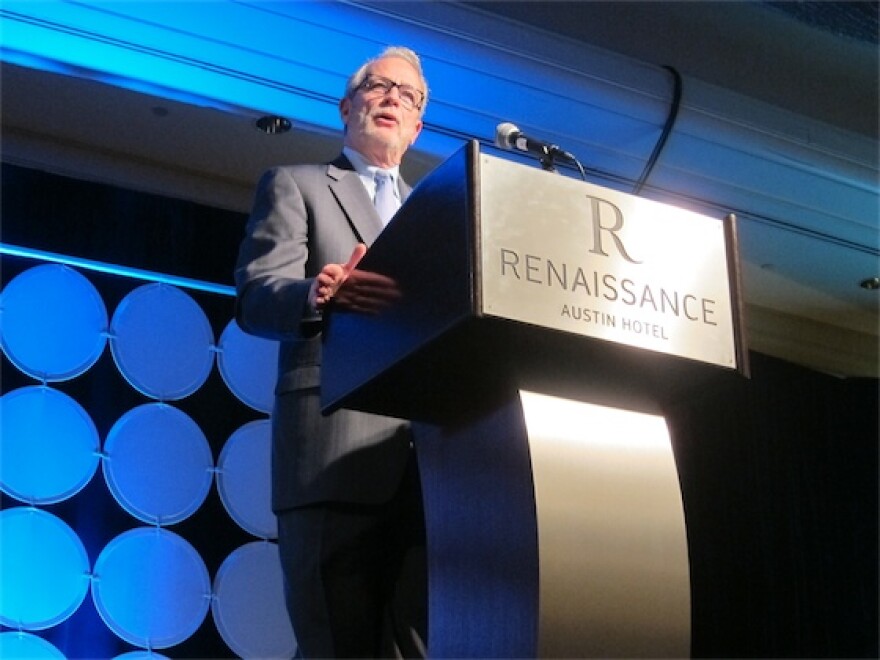The head of the state’s $3 billion cancer fighting agency sought to reassure some of its biggest supporters today after a recent wave of resignations at the Cancer Prevention Research Institute of Texas. CPRIT’s executive director Bill Gimson delivered an opening address at a three-day conference that started today in northwest Austin.
It was Gimson’s first public speech since 33 scientific peer reviewers resigned in protest over funding decisions and accusations of favoritism. Gimson acknowledged the setback but defended the agency’s process.
“It’s my promise that CPRIT will maintain that gold-standard peer review process, always pick the very, very best game changing projects, do our best to get life-saving products to Texas cancer patients as quickly as possible,” Gimson said from the podium.
Some of those who heard Gimson’s speech said they hope CPRIT can put the controversy behind it. Stacey Young-McCaughan is a nurse scientist at University of Texas Health in San Antonio who has benefited from CPRIT grants.
“I think many of us across the state are very concerned about what happened with the commercialization reviews and awards,” she said. “But taken on whole, CPRIT has done a terrific job. They’ve moved science forward. They’ve moved clinical care forward. So I’m willing to give them a chance.”
“I know it’s been rather messy, but it’s better to get it all out in the air,” said Melissa Glueck, associate director of the Keck Center, a biomedical training arm of the Gulf Coast Consortia and another CPRIT award recipient. “There’s so much good work being done, and I personally think that the research is very important.”
The mass resignations of peer reviewers this month happened after Nobel laureate Dr. Alfred Gilman quit in protest. He said the final straw for him was when CPRIT approved a $20 million proposal from M.D. Anderson Cancer Center in Houston without scientific review.
CPRIT said it was a commercialization project and therefore didn’t require scientific examination. But that proposal has since been put on hold and will undergo a second round of review. Some of the resignation letters, obtained by KUT News, show many peer reviewers quit in solidarity with Gilman.





